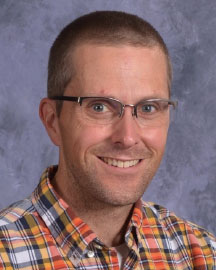Nuclear Decay and Earth’s History
Presented by Chad Bridle
Wednesday, June 8, 2022 ◉ 9:00 am to 12:00 pm
Today’s science education standards seek to grow students as scientists. Content is not learned in isolation, but instead is grounded in an engaging phenomenon. The questions and problems that arise from the phenomenon necessitate new content knowledge. In this workshop, students will explore several rich bodies of scientific data regarding Earth’s past and seek to make sense of it by investigating nuclear decay and half-life. Students will evaluate evidence and develop evidence-based arguments about how Earth’s surface has change over time. The inherent complexity of Earth science data allows for students to hone their data interpretation and evidence-based argumentation skills. Participants will explore curriculum and instructional strategies related to a unit of instruction on nuclear decay, half-life and plate tectonics as well as consider how Earth and Space science can be used as initial phenomena for chemistry courses.
Target Audience: Middle/High School, Chemistry, Earth Science
Georgia Science Standards: SES2, SES4, SPS4
NGSS DCI: MS-ESS2-3, HS-PS1-8, HS-ESS1-5, 2-1
NGSS SEP: Developing and Using Models, Engaging in Argument from Evidence
NGSS CCC: Energy and Matter, Stability and Change, Patterns
Presenter


Comments are closed.